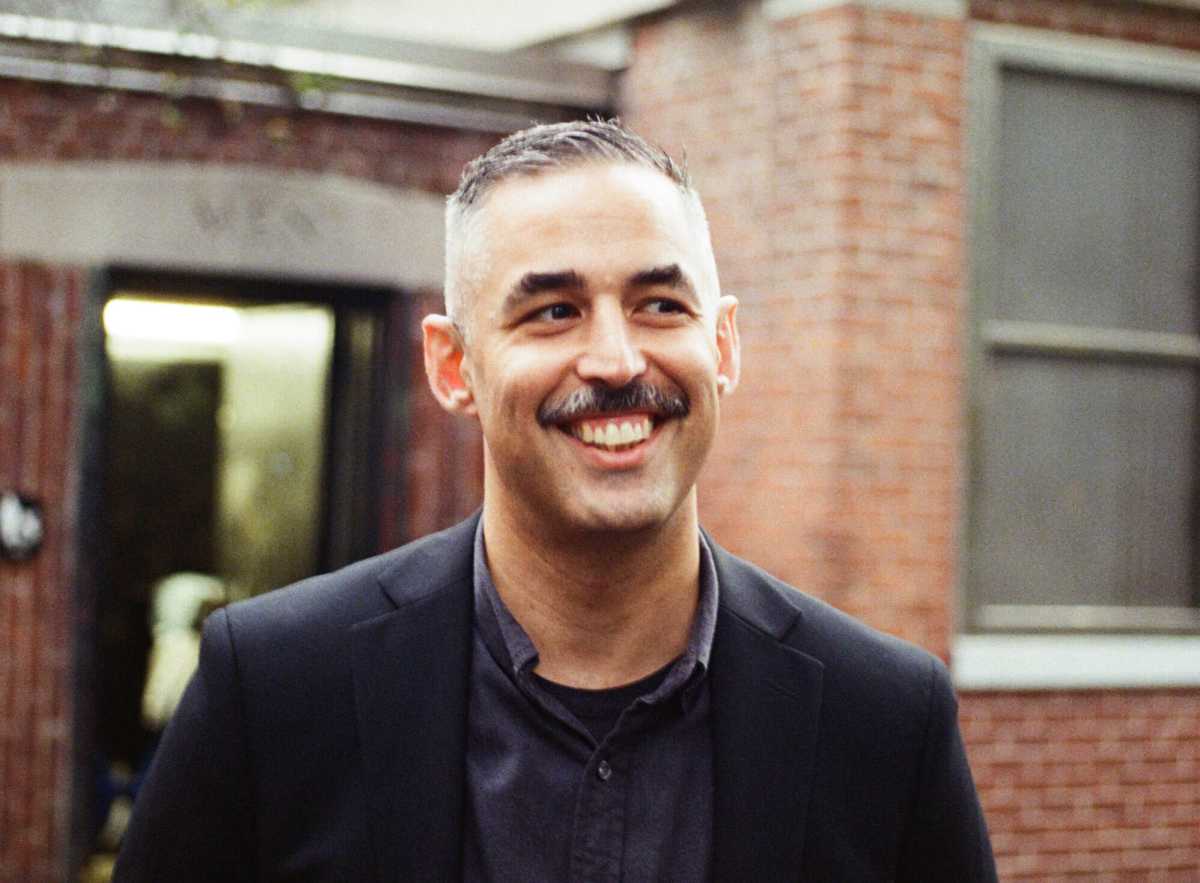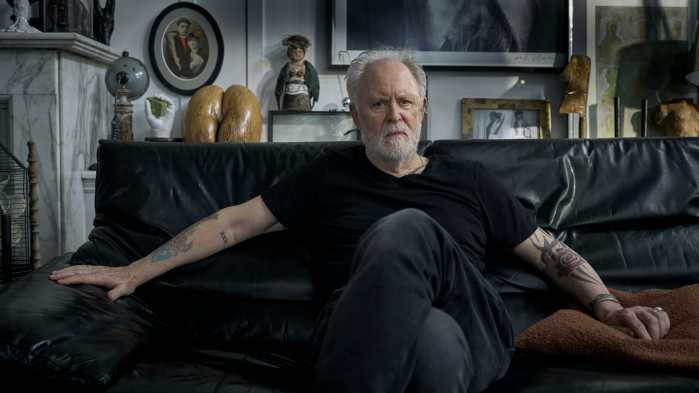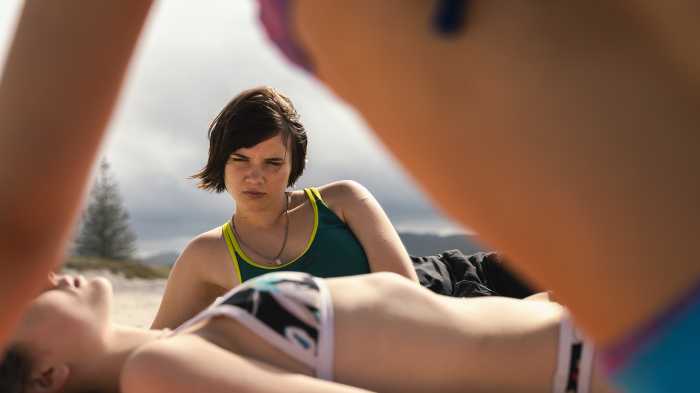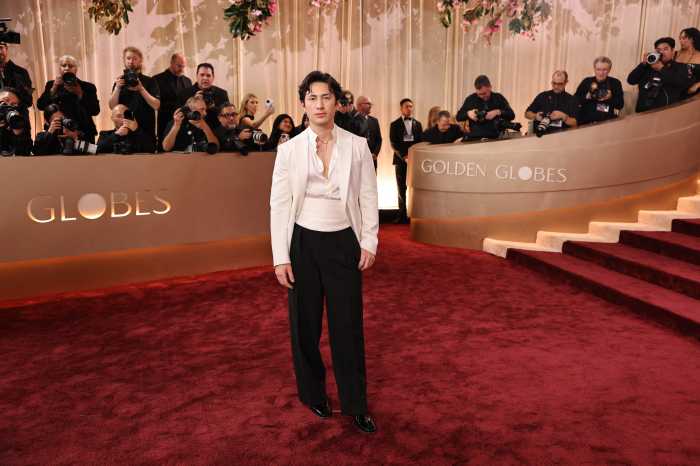Long involved with film exhibition, production, and distribution, Adam Baran is now curating “Narrow Rooms,” a monthly series at Anthology Film Archives devoted to messy, complex movies about queer lives. Along with gay director Ira Sachs, he founded the long-running “Queer/Art/Film” series in which queer artists choose a film that matters to them and speak about it afterwards. “Narrow Rooms” kicked off with two ‘70s British films, Alan Clarke’s “Penda’s Fen” and “Duffer.” On October 15th, it will present Brazilian director Gustavo Vinagre’s no-budget opus “Unlearning to Sleep.”
Gay City News caught up with Baran to discuss his latest work and what comes next.
How long ago did the idea for “Narrow Rooms” come to you?
Baran: It came to me last winter. I was staying with my friend Austin in Provincetown, and I was driving back and forth from New York. I’d go on a five-hour drive, and I’d have all this time to think about what I wanted to do and what I missed in my experience. People constantly come over my house and say “Show me something crazy,” so I started to think about what a festival would be if I curated it myself. I’ve been obsessed with James Purdy’s dark gay novels, usually about two people in a relationship mutually torturing each other as an expression of love. I started thinking about all these queer films that are too hot to show now or just strange things I’m fixated on. One day, Austin said “let’s put on ‘Penda’s Fen,” and I was completely amazed by it. I thought “this should be the type of thing I show at a festival.” It’s totally wild, amazing, perverse, and shocking. One of the ideas behind it was that we have a reliance on gay film festivals to shape the landscape of what LGBTQ films get attention. This could be a place where I have some power in shaping that conversation, both with old and new films, by showing films that take risks and don’t conform to the dominant mode of gay cinema.
For instance, the mix of sci-fi, porn, and a home movie mode in “Unlearning to Sleep” is really interesting.
Baran: I love Gustavo’s work. We’ve become friends. I just think Brazilian gay filmmakers are making some of the most interesting work now. That particular film is a throwback to a kind of experimental gay cinema that doesn’t get made now, both in terms of titillation and trying to comment on structures of capitalism. It’s an inherently queer movie. His films are very bold cinematic queer explorations of sexuality. “Film for a Blind Poet” is this film where he interviews a blind poet who lives in an S&M relationship. Eventually, he stages his own submission to the poet. He brings a tradition of Brazilian experimentation into the kind of films that engage deeply with what’s going on politically in Brazil but do it through a lens of queer sexuality and resistance.
Over the past few years, particularly during the pandemic, a lot of people have become used to only watching films at home. How important is cinema as a collective experience to “Narrow Rooms”?
Baran: I’m also one of those people. As a teenager, my experience was going to the video store Friday and renting four movies, which was the max I could take, and spending the weekend watching them in my room rather than going out. When the pandemic happened, that mode switched back on quickly. What “Narrow Rooms” offers in terms of collective experience is the same thing as “Queer/Art/Film”: an opportunity to meet people who are interested in the same kinds of films you are, or not. It’s a chance to learn about something new, films that aren’t being shown elsewhere, and engage with other queer people and form community. Some of my most formative experiences as a filmgoer were ones where I hated something but couldn’t get it out of my mind and kept thinking about it.
There’s been a move in the last five years or so towards queer audiences demanding optimism and wholesomeness. I can see where there that’s coming from, but you run a risk of shouting “Bury Your Gays” at anything that has an unhappy ending or brings up difficult aspects of queer life.
Baran: That’s extremely on the nose. Before we started doing “Queer/Art/Film,” there wasn’t that much queer film programming in New York. There was little rep programming, and NewFest was the only game in town. As someone who’s programmed for festivals like it, they absolutely have an interest in showing warm and fuzzy gay movies because the audiences are so uninterested in being challenged and want to see affirming content. When we were doing Outfest, the guiding ethos there — and at most gay festivals — was “the movie will sell if you show two shirtless boys kissing.” It’s true, they sell out immediately. That’s obviously the type of content that gets prioritized. I love and need happy stories too. “Parting Glances” is one of the best movies to balance that. There’s an imbued sadness throughout, but you don’t have to see a death. I want to see crazy s**t. I don’t just want to go on Netflix and see a carbon copy of a boiler-plate gay romance.
What films do you have coming up in November and December?
Baran: In November, I’m thrilled we’re going to be showing a brand new restoration of Patrice Chéreau’s bleak, beautiful 1983 film “L’Homme blesse” aka “The Wounded Man.” The film tells the story of a teenager (Jean-Hugues Anglade) on vacation with his family who sneaks off to the cruisey toilets in the train station and meets a violent hustler who he becomes deeply enthralled with. It kind of anticipates “Blue Velvet” in the way it depicts a teen on an obsessive journey into the dark gay underworld of the vacation town, though it’s aesthetically different, lush, and dark in the way only the great Patrice Chéreau could pull off — with a script co-written by the great writer Herve Guibert, which won the 1984 Cesar. It’s a very dark film, definitely goes against the modern trend of happy endings and positive depictions of gay love, but it’s one of my very favorites. I have a framed Spanish poster for the film above my bed, so my lovers are always asking me about it. Now I can just tell them to come to the screening! Then in December, I think we’re gonna show Derek Jarman’s “The Garden.” I only discovered it last year and watched it around Christmas. I want to establish that as a gay Christmas movie tradition to counter the gay Hallmark movies. I was also toying with showing Yann Gonzalez’s “You + the Night,” and Rosa von Praunheim’s “Fassbinder’s Women.”



































